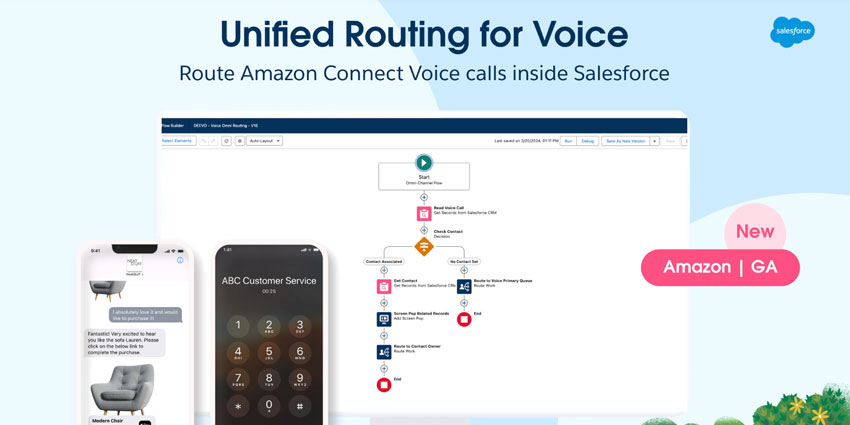From little more than a digital Rolodex to the bedrock of many customer experience strategies, CRM systems have come a long way in the past 28 years.
Indeed, that is how long it has been since the term customer relationship management (CRM) was first coined. Just four years later, Salesforce launched the first cloud-based CRM solution.
Since, the technology has advanced significantly. Now, AI promises to push it even further, enhancing customer experience in new ways beyond the confines of the contact center.
Our expert will dive deeper into its potential. This month, they include:
- Tom Martin, CEO of Glance
- Ritu Bhargava, President and Chief Product Officer at SAP CX
- Simon Morris, Area Vice President of Solutions Consulting at ServiceNow
- Chris Pennington, Chief Customer Officer at SugarCRM
- Sean Evers, Vice President of Sales at Pipedrive
Read on to capture their perspectives on the present and future of CRM platforms.
How Can a CRM System Improve Customer Service?
Martin: CRM systems enable personal connections, not just holding customer conversation insights, but improving interactions by making agents more knowledgeable. It’s a two-way street.
Indeed, with an integrated CRM, all customer information is in one place: at the agent’s fingertips. Such accessibility allows reps to streamline service experiences, build rapport, and increase customer satisfaction.
Bhargava: Digital transformation has brought many efficiencies into business processes, but it’s also highlighted operational, organizational, and technological silos. Contact centers are typically no strangers to this issue.
Breaking down these barriers and centralizing each customer’s data – from their channel choices to purchase history – allows agents to understand their lifecycle. As a result, they have additional context to improve customer conversations.
Nevertheless, this is a tricky process, and legacy CRM solutions must evolve into data-driven, customer-centric technologies to meet customer needs in the modern omnichannel landscape.
Morris: Traditional CRM solutions support a customer’s product selection and purchasing journey but are often insufficient when ensuring customer success and maximizing customer lifetime value.
Indeed, they usually stop at the selling or buying process, whereas customer service excellence drives fulfillment throughout the entire company.
Thankfully, CRMs can improve customer service when they’re used to drive customer success beyond just the initial transaction.
At ServiceNow, we call this customer service management, which indicates an evolving relationship that offers enduring value for the customer.
Customers who receive excellent service experiences throughout their lifetime will show more loyalty, generating increased revenue.
As such, taking a long-term approach to CRM will likely become a critical differentiator for businesses to stay competitive.
Pennington: True customer service – the ancestor of the customer experience discipline – involves far more than responding to support requests and resolving issues. Companies must anticipate and fulfill needs before customers even realize they have them.
Today, successful companies have proactive CX strategies and programs in place – one that empowers employees across the entire organization to provide outstanding service at any stage of the customer journey.
Such service separates beloved brands from struggling companies. The essential ingredient is having the right tools, data, insights, and strategy to bring them together to deliver a high-definition customer experience.
Modern AI-infused CRM platforms and predictive analytics help businesses enhance the quality of their customer service – enabling better experiences, more personalized engagement, more accurate predictions, and better decision-making.
Evers: A central repository for all interactions helps companies to maintain relationships over time, even if employees change.
CRM systems enable this, pulling data and using it to deliver differentiated customer experiences, whether that is through self-serve digital channels or human interactions.
Yet, don’t overestimate the value of trust here. Trust is essential to building long-lasting customer relationships, and a CRM ensures the business keeps data secure and maintains privacy.
In addition, having a CRM helps companies to avoid looking disjointed and ensures that customers have a consistent experience with the business, no matter who they interact with.
How Can a CRM Improve CX, Beyond the Confines of the Contact Center?
Martin: Each time a customer reaches out, businesses have a chance to learn and improve the individual customer’s experience. Yet, sometimes that information returns to the CRM and simply sits there.
Intelligent organizations mine that data to understand – individually and at scale – customer pain points and how they can stay ahead of customer issues.
These findings can improve customer onboarding, AI application, and cross-department communication.
Moreover, they may highlight when customers are likely self-serve or want human connection. By harnessing such insights, businesses may enhance customer relationships.
Bhargava: Moving past traditional CRMs to more intelligent CX technology solutions, such as Customer Data Platforms (CDP) powered by data and insight, provides customers with the personalized experiences they crave.
Such systems enable CX strategies that center on a brand’s ability to anticipate customer needs in a more meaningful, profitable, and measurable way.
Indeed, the new era of customer data management – with enterprise CDPs connecting back and front-end business processes – is transforming how brands connect with customers.
How? By surfacing intelligence that sits in disparate systems across the enterprise and serving it up at every customer touchpoint.
To protect revenue and drive growth, companies need these scalable, extensible platforms to test and roll out new strategies fast, expand into new channels and geographies, and reliably manage peak demands.
Morris: A CRM system stores the data and insights business leaders gather from numerous touchpoints, connecting otherwise disparate systems.
Once there, the organization may leverage it throughout the customer lifecycle to personalize support, mediate customer needs, and improve overall satisfaction.
In the past, many approached customer mediation with an omnichannel approach. Yet, by developing a robust CRM geared towards data-driven service management, organizations can solve problems, consolidate convoluted CX systems, and not simply add channels.
Wielding intelligence and actionable insights also provides a 360-degree view of the customer, empowering organizations to provide a more personalized and relevant experience.
Pennington: Improving customer experience is the job of everyone within the organization. However, the primary challenge for many organizations is having an incomplete view of customer activity, which impedes creating a “high-definition” picture of its customers.
Organizations must unite the efforts of those working on the customer frontlines – sales, marketing, and customer service teams – and the systems that support them to deliver exceptional experiences.
Several factors drive excellent organizational alignment, including seeing and utilizing relevant data, establishing mutual goals and metrics, and creating a seamless handoff process to improve productivity and ensure ownership.
An integrated CRM platform ensures that the left-hand knows what the right hand is doing, and the process starts before prospects enter the pipeline.
Evers: By storing all customer interactions, CRM systems allow companies to stay updated on customer cases, understanding the next best steps.
As such, they may eliminate disjointed communication and provide a consistent customer experience, regardless of who the customer interacts with in the company.
Doing so not only improves CX but also builds trust with the company, allowing it to demonstrate professionalism and prove the robustness of its business processes.
Customers will also appreciate that the company is trying to understand their needs and concerns, which may offer the business a competitive advantage.
Indeed, Pipedrive research shows that only 23 percent of buyers agree that sellers”always” put the buyer first.
Which CRM Trends Will Change the Future of Customer Experience?
Martin: As they evolve, CRM systems will transform into CX data goldmines. Meanwhile, as analytics and machine learning develops, more CX metrics – CSAT, AHT, FCR – will live in the CRM.
Such a combination of data and analytics will prove essential for organizations to understand their customer experience and – crucially – improve it.
Embedded AI will also proactively serve “next actions” to agents and customers, with algorithms understanding what has helped other customers in the past.
Moreover, the AI will highlight when self-service will suffice and when customers need personal attention, connecting them more smoothly with a rep that already knows their needs.
Realizing this future relies on bringing together diverse technology to offer customers omnichannel experiences without losing the thread of their journey.
Bhargava: Every app will become an intelligent app driven by AI. The evolution from creating AI models to using them contextually -across every step of a customer’s journey – is upon us, be it in service, product recommendation, or email responses.
Indeed, the use of GPT-3 in service, sales, marketing, commerce, and across business processes is looking very promising.
Yet, currently, many brands are first considering: how can CX help accelerate time to value and build long-term loyalty given the macroeconomic headwinds?
They have noticed consumers shifting their buying patterns and becoming more selective with the brands they buy from.
As such, companies must bolster their CX strategies by connecting front-office data with the back-office to develop a 360-degree view of customers to understand their behavior and engage with them in personalized ways.
CX must help by doing more with less.
Morris: AI and ML are transforming the way many systems collect and analyze customer data. Moreover, they help to automate workflows, resolve internal and external complexities, and provide real-time, meaningful experiences.
In doing so, the technologies will expedite, simplify, and improve many processes and experiences that may have once been convoluted pain points.
By harnessing this emerging AI, CRM systems may also become far more functional and collaborative, allowing teams across departments to synergize to benefit CX.
Pennington: In today’s digital-first age, customers prefer using self-service for a more seamless experience. This trend extends beyond B2C and into the B2B customer journey.
Indeed, in the B2B sector, self-service capabilities are becoming highly relevant beyond the traditional after-sales service use case, enabling digital engagement across the customer journey.
With the proliferation of digital channels, customers have changed the rules of engagement: they want speed, convenience, and efficiency when interacting with organizations.
Online and mobile self-service is crucial to provide the experience that B2B customers demand – before and after they buy.
Looking ahead, digital self-service will expand beyond traditional customer service and support throughout the entire customer journey. It will touch deal room scenarios, online contract negotiations, and channel partner collaboration while enabling easy access to relevant business documents, transactions, and more.
Evers: As customer expectations evolve, CRM trends play a crucial role in shaping the future of CX.
One of the most significant trends is the demand for instant gratification, which means that customers expect immediate answers to their questions and requests.
Companies that can use their CRM solutions to connect the dots and provide a seamless experience across multiple channels will set themselves apart from most competitors.
Also, AI will remain a crucial tool in boosting the value of CRM. Automated and more intelligent software allows companies to predict the future with greater accuracy, understand next best actions, and tailor customer engagement to be more relevant and meaningful.
Miss out on our previous CX Today roundtable? Check it out here: How Can Microsoft Teams Improve My Contact Center?







